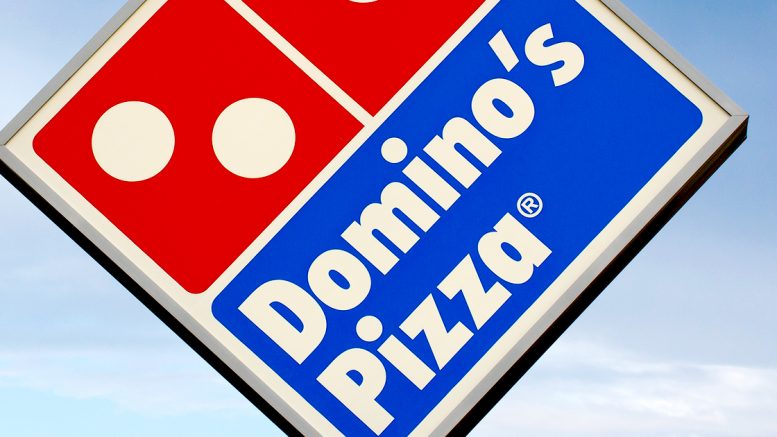Domino’s is in deep dish.
On Tuesday, New York Attorney General and fair labor crusader Eric Schneiderman announced a lawsuit alleging that the corporate pizza giant Domino’s and three franchisees were engaged in “widespread and systemic” violations of the state’s labor law.
Domino’s, the suit says, knowingly peddled an employee-hours tracking system called PULSE, that under-calculated hours, shorting employees at least $565,000 in some New York stores. It was a fix deemed “low priority” by the company over years, the suit alleges.
For that reason, the lawsuit could have serious implications for corporations that run franchises: Schneiderman said that the case presents Domino’s as a “joint employer,” opening the parent company up to franchise employee complaints about labor violations. Non-joint employer corporations otherwise dodge responsibility for complaints lodged against operators of locations those companies own.
“We’ve found rampant wage violations at Domino’s franchise stores. And, as our suit alleges, we’ve discovered that Domino’s headquarters was intensely involved in store operations, and even caused many of these violations,” Schneiderman said in a statement.
“At some point, a company has to take responsibility for its actions for its workers’ well-being,” he said.
Other findings from the investigation.
The investigation also found that 78 percent of its New York franchisees paid some employee less than the minimum wage, and 86 percent listed rates below the required overtime rate.
Reached by phone on Tuesday, a Domino’s spokesperson told ATTN: that the independently owned locations are cooperating with the investigation. And in a statement to the New York Times, the company claimed that the suit “demeans the role of small business owners,” and “disregards the nature of franchising[.]”
But Schneiderman disagrees, saying in a statement that the suit actually protects the rights of small business owners in part by opening up the parent company to complaints.
“In fact, we are seeking to vindicate the rights of small business owners and our eighth cause of action is a claim against Domino’s for fraud for imposing this flawed software system on it, requiring that they use it, knowing it is enabling fraud and not disclosing adequately,” he said.
This isn’t the first time New York has gone after the pizza chain for unfair labor practices.
In 2014, Domino’s settled a $1.3 million class-action lawsuit over wage violations, and also paid out $448,000 in wage theft restitution for workers, The New York Times reported.
But because the new case makes the “joint employer” argument, it could have widespread implications in the quick-service industry and beyond.
“One of the virtues of the franchise model for a brand like Domino’s is that it gives frontline local managers a strong incentive to minimize labor costs,” said Cynthia Estlund, of New York University’s Center for Labor and Employment Law, in an email to ATTN:.
“The AG’s filings allege that Domino’s in these cases didn’t just leave it to local franchise owner/managers to cut costs, but got actively involved in managing and paying workers. That might well make them liable as an employer under traditional tests of ‘joint employer’ status,” she said.
Nationwide, wage theft cases have increased in recent years, with the Department of Labor’s Wage and Hour Division reporting more than $1 billion in unpaid U.S. wages recovered since 2009.
Other corporate franchisers have faced existential questions about their responsibility, too. In the most prominent case, a lawsuit brought against McDonald’s by the National Labor Relations Board argues that the burger chain is responsible as a joint employer for labor violations at franchise locations.
Source: www.attn.com




